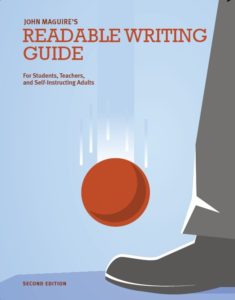Abstractitis is a writing disease and a threat to clarity. It’s related to another illness called Abstract-orrhea. This sickness produces an endless and thick flow of abstractions. In extreme cases, these two diseases can kill the meaning of a passage.
Abstractitis was first identified by Henry Fowler in his Modern English Usage. The effect, of the disease, he reported dryly, was to make writers produce monstrosities like Participation by the men in the control of the industry is non-existent instead of The men have no part in the control of the industry.
The famous critic Henry Fowler drolly reports on how the disease progresses:
…the danger is that, once the disease gets a hold, it sets up a chain reaction. A writer uses abstract words because his thoughts are cloudy; the habit of using them clouds his thoughts still further; he may end by concealing his meaning not only from his readers but also from himself, and writing such sentences as The actualization of the motivation of the forces must to a great extent be a matter of personal angularity.
The abstract word [is] always in command as the subject of the sentence. Persons and what they do, things and what is done to them, are put in the background and we can only peer at them through a glass darkly.
Later in his dictionary Fowler prints a small article on the result of abstractitis under the heading “periphrasis.” The phrase means putting things in a roundabout way—as if you were walking around the subject on tiptoe rather than saying it right out.
In Paris there reigns a complete absence of really reliable news is a periphrasis for There is no reliable news in Paris.
The motive for this overuse of abstract nouns in a round-about style is nicely described by Fowler:
The existence of abstract nouns is a proof that abstract thought has occurred; abstract thought is a mark of civilized man; and so it has come about that periphrasis and civilization are by many held to be inseparable. These good people feel that there is an almost indecent nakedness, a version to barbarism, in saying No news is good news instead of The absence of intelligence is an indication of satisfactory developments. Nevertheless, The year’s penultimate month is not in truth a good way of saying November. (periphrasis article)
A horrible style
Abstract words produce a horrible style when flung together witlessly. The most common abstractions in English are words ending in –tion. As Fowler puts it
Turgid flabby English is full of abstract nouns; the commonest ending of abstract nouns is -tion, and to count the -ion words in what one has written, or, better, to cultivate an ear that without special orders challenges them as they come, is one of the simplest and most effective ways of making oneself less unreadable.
Count the –ion words in what one has written. Challenge them as they come. Can it be that simple? It can be.
-ion (abrasion)
-sion (revision)
-tion (libation, pertubation, eradication)
-ction (objection)
-ition (sedition)
-ution (involution)
Walker’s Rhyming Dictionary lists about 1300 English words that end in –ion. (I use Walker’s because it conveniently lists words alphabetical order by last letter, for the sake of rhyming; thus all the –ion ending words are grouped together in Walker’s.)
But –ion is not the only ending that signifies an abstraction. Here’s a more complete list. The first section come from Latin; the second, as far as I know, from the Anglo-Saxon or other northern roots of English.Other endings that declare a word comes from the Latin and is abstract:
-ism (secularism, vampirism, Marxism)
-ment (preferment, containment)
-ence (eloquence, congruence, experience)
-ance (ignorance, endurance, reluctance)
-tude (magnitude, plenitude)
-ure (literature, adventure)
-ness (illness, kindness)
-ship (companionship, leadership)
-hood (widowhood, livelihood)
many words in –y
-ity (placidity, lucidity, chastity)
-ony (patrimony, parsimony)
-logy (zoology, morphology)
-sophy (philosophy,
-cracy (pornocracy, )
-graphy (choreography, historiography)
In English we can turn words around and make them do what we want, and we can make anything into a noun. (Author Joseph Williams called this change Nominalization.)
Do big words compensate for small confidence?
I can understand why polysyllabic writing keeps gaining ground and coming back despite many attempts to drive it fully underground. The less people write, the less confident they are that their stories are worthwhile. Feeling less-than, people compensate. They write with much longer words. Such words, after all, show you went to college. The average high-school dropout is not going to put polysyllabic and syntax in the same sentence, so if I put them in, I prove my status. I have gone to college and can handle the long words. Such posturing is understandable, because we humans are so status orient ed, but it’s not clear writing.
• Flowers are only secondarily about beauty; their purpose is reproduction.
• Writing is only secondarily about impressing anyone; its main purpose is to serve the reader.

